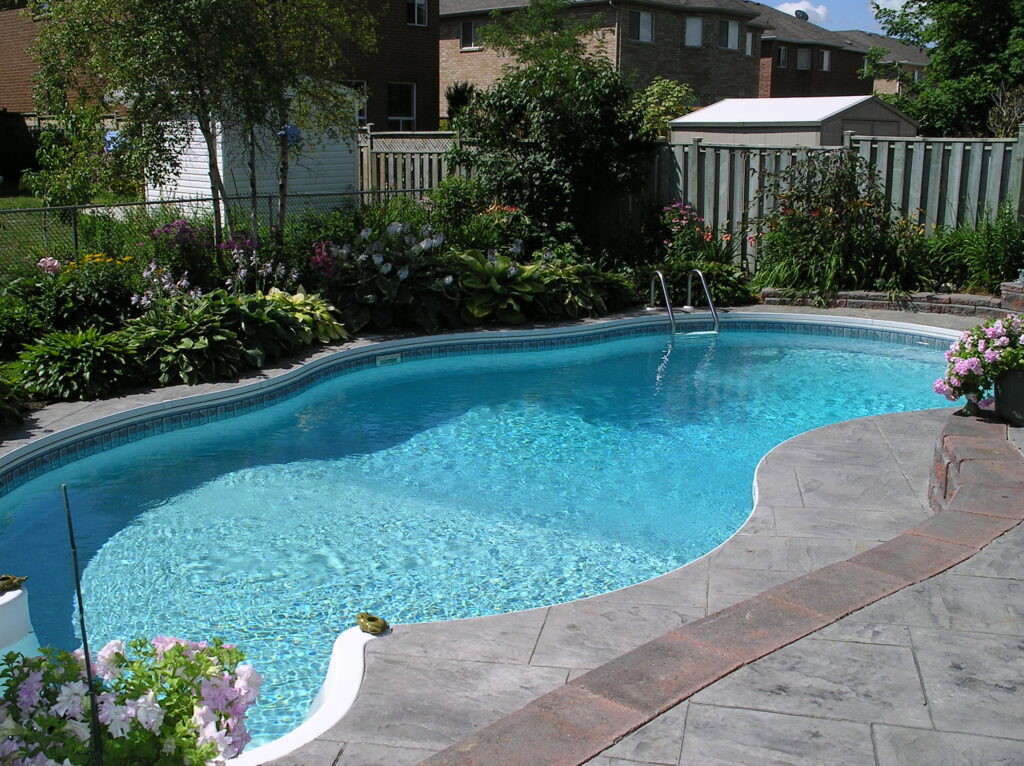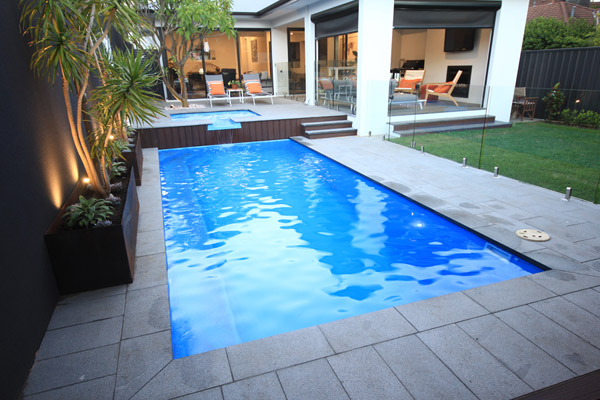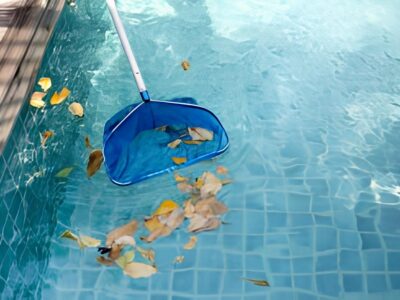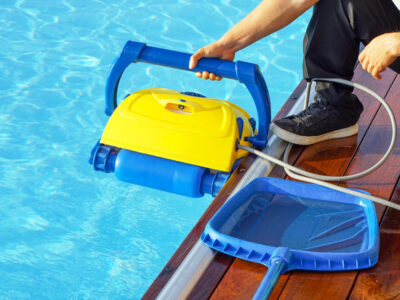Every pool owner aspires to maintain a pristine pool, but persistent algae never let this dream come true.
Keeping a pool free from algae can be a never-ending challenge for pool owners. Most people don’t even know how to treat pool algae and prevent its further formation.
Often, people are confused about whether to vacuum the algae to waste or filter it out. That is why we are here to help!
In this article, we will compare two key cleaning methods to help you select the best option for your pool.
Additionally, we will guide you on maintaining a refreshing and relaxing swimming experience, including effective techniques for vacuuming an inground pool.
Say goodbye to algae and murky water with our expert tips for keeping your pool pristine.
Pool Algae: Causes, Types, and Impact

It is essential to understand your problems if you want to eliminate them.
Similarly, if you wish for an algae-free pool, you must understand its causes, types, and impact.
Inadequate chlorine levels, poor water circulation, unbalanced pH levels, organic debris, and other factors give birth to algae in a pool.
Pool algae come in several varieties, the most common being green, yellow/mustard, and black.
Understanding these distinctions is crucial because different types of algae require specific treatment methods, and each type is caused by a different reason.
For instance, green algae flourish in well-lit areas and make your pool water slimy and murky. It grows rapidly, but it is the easiest to clean.
On the other hand, yellow/mustard and black algae tend to be more stubborn and resistant to treatments.
The presence of algae in your pool not only hampers its looks and aesthetic appeal but also creates health risks for swimmers.
Algae can harbor harmful microorganisms that can severely affect humans and disrupt your pool mechanisms.
Vacuuming Vs. Filtration

In the battle against pool algae, pool owners are often left grappling with the decision of whether to employ the vacuuming-to-waste method or rely on their filtration system.
This decision is crucial as it impacts the further growth of algae and the condition of your pool water.
Let us explore the merits and drawbacks of each approach to help you make the best choice!
1. Vacuuming to Waste
Vacuum to waste is similar to a direct strike against the pool algae.
This method bypasses the filtration system, sending the contaminated water directly out of the pool while the vacuum removes algae and debris.
It can swiftly and effectively eliminate algae from the roots.
Sending the water directly to the waste prevents algae spores and debris from returning to the pool.
This method is an excellent choice for rapid remediation.
However, it can lead to significant water wastage, which may not be environmentally or economically sustainable.
Moreover, continuous water disposal can cause additional stress on pool equipment, potentially leading to machine failure and damage.
2. Filtration
This method gradually deals with algae. It is based on your pool’s filtration system and its efficiency and strength.
It is more sustainable than vacuuming the waste method as it recirculates the pool after treating it rather than directly discarding it.
Filtration also places less stress on the pool equipment than vacuuming to waste. This method is an ideal choice for regular maintenance and small algae invasions.
It provides continuous filtration and circulation, helping to maintain water clarity and balance over time.
However, this method is not effective in dealing with large algae colonies. In such a scenario, you would need additional chemical treatments to get rid of the algae completely.
This method is highly dependent on the efficiency and capacity of your filtration system and may vary for multiple reasons.
Therefore, it is recommended that your pool equipment is checked for working condition before starting the treatment.
Tips to Prevent Algae

Preventing algae formation is essential for maintaining clear and healthy water in your pool.
It will also ensure the safety of the swimmers.
Here are some tips to prevent algae from spreading in your pool:
- Regularly test and balance your pool’s pH, alkalinity, and calcium hardness levels, as algae spread mostly in unbalanced water.
- Maintain an adequate chlorine level (typically 1-3 ppm) to disinfect and inhibit algae growth.
- Ensure proper circulation and filtration of the pool water.
- Regularly clean the pool walls and floor to remove growing algae or debris.
- Reduce your pool’s direct sunlight exposure, as algae grow rapidly in sunlight. If feasible, use pool covers or shade structures.
Conclusion
To keep your pool algae-free and clean, it is critical to choose between vacuuming to waste and filtration.
Each of the two methods has its advantages and limitations and caters to different needs and preferences.
Vacuuming to waste is a precise and swift method against algae; however, it comes at the cost of water wastage and equipment failure.
On the contrary, filtration provides a more conservative and sustainable approach but is unsuitable for large algae colonies.
As we conclude this analysis, remember that the decision hinges on factors unique to your pool’s situation, equipment capabilities, and personal preferences.
The key lies in making the best choice that results in a sparkling, clean, and algae-free pool.









Comments